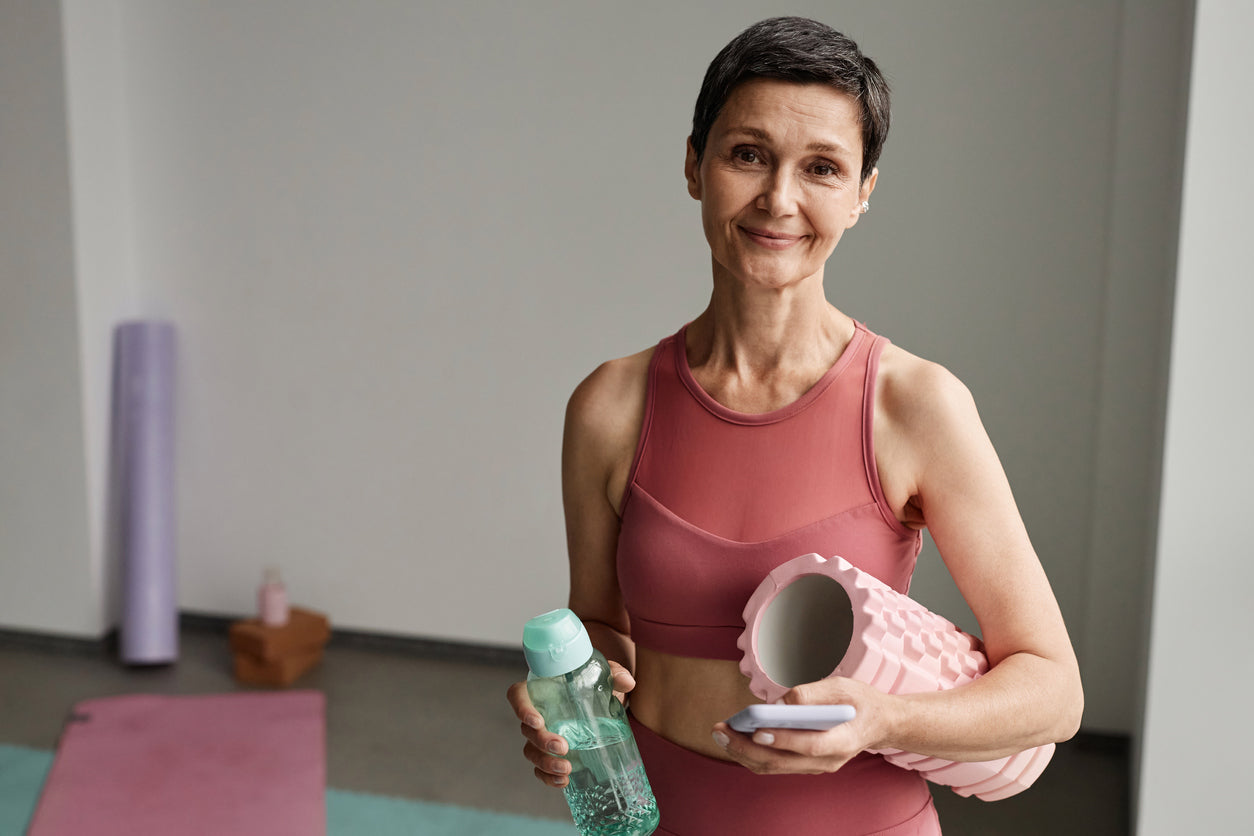As a self-confessed lover of carbohydrates, when I entered my 40’s, I felt like I was rapidly losing muscle and my energy levels plummeted. I hadn’t made changes to my exercise routine. I just felt like I wasn’t getting anywhere and that some changes needed to be made.
While studying for my Menopause Fitness Specialist Certification, I had a lot of “aha” moments that resonated, and one of these was that I needed to adjust my nutritional ratio to increase my protein intake and slow down muscle loss.
As we lose muscle, we increase our chances of bone loss, injuries, weight gain and more (read all about it HERE).
Protein intake plays a crucial role in addressing these concerns by supporting muscle retention and repair. Let’s dive deeper into the significance of protein consumption for midlife health and beyond, and explore diverse sources and strategies to meet your protein needs effectively.

Importance of Protein For Health:
Muscle Loss
For women 40+, you may notice accelerated muscle loss. Adequate protein intake becomes pivotal in mitigating this loss, preserving muscle mass, and sustaining strength.
Role in Muscle Maintenance
Protein is essential for muscle repair post-exercise, promoting recovery, and supporting overall bodily functions. Leucine, a vital amino acid, aids in protein synthesis crucial for muscle repair and growth.
Determining Protein Requirements
Recommended Intake
For an active woman engaging in regular exercise (4-5 sessions per week, including weight training), the suggested protein intake ranges from 1.5 - 1.8 grams per kilogram of body weight. For instance, a 65kg woman should aim for 95 - 120 grams of protein daily.
Feasibility
Achieving these protein goals is feasible, even for individuals following vegan, vegetarian, or pescatarian diets, through a combination of diverse protein sources and potential supplementation.
Diverse Protein Sources
Animal-Based Proteins
Lean beef, poultry, fish, shellfish, eggs, and dairy products serve as excellent sources of high-quality protein for muscle maintenance and repair.
Plant-Based Proteins
Plant-based options like beans, chickpeas, seeds, nuts, and tofu offer valuable protein alternatives suitable for various dietary preferences.
Leucine and Protein Synthesis
- Importance of Leucine: Prioritize protein sources with adequate leucine content (minimum 2.5mg per serving) as it significantly contributes to protein synthesis and muscle repair.
- High Leucine Foods: Chicken, beef, pork, fish (such as tuna), tofu, canned beans, dairy products, and eggs are rich sources of leucine.

Utilizing Protein Supplements
Role of Protein Powders
Supplements serve as an effective means to meet daily protein requirements. When selecting a protein powder, opt for those with low sugar content, less than 5 grams per serving.
Recommended Options
Whey and plant-based protein powders are viable options, offering 20-25 grams of protein per serving and help to maintain adequate protein levels.
You may find that as you age, whey protein might feel uncomfortable and switching to a plant-based protein might help.
Summary
Ensuring adequate protein intake stands as a cornerstone in managing muscle loss and supporting overall health from midlife and beyond. By incorporating a diverse range of protein sources, understanding the significance of leucine, and considering suitable protein supplements, women can effectively address their nutritional needs during this life stage, promoting muscle health and overall well-being.
AND, if you are planning to add a protein smoothie, here is my favourite recipe!
1 cup coconut water
Tracy's Favourite Banana Protein Smoothie
- ½ cup ice cubes
- ½ banana
- 2 scoops of protein powder
- 1 teaspoon of chia seeds, hemp seeds and ground flaxseed.
- I teaspoon of almond butter
- ½ teaspoon of cinnamon
- Options: frozen berries and baby spinach.
Written by Tracy Minnoch-Nuku
Tracy Minnoch-Nuku (B.Ph.Ed - Otago, NZ and MBA, Vic, Melb.) is an educated and experienced advocate for women's health and fitness. With over 30 years in the fitness industry, Tracy began her career as a Group Fitness Teacher and Personal Trainer where she transformed bodies and lives through fitness and nutrition. Tracy spent 20 years developing teams and fitness training programs in Asia - live, online and through fitness apps. Tracy’s own experience with menopause was messy. Without any prior warning, her symptoms began to accelerate and negatively impacted on her physical and mental health, work life and relationships. Tracy documents all of her symptoms and experiences in her book “My Menopause Memoir” as well as through her highly acclaimed podcast “Sexy Ageing”.
Learn more about Tracy HERE






